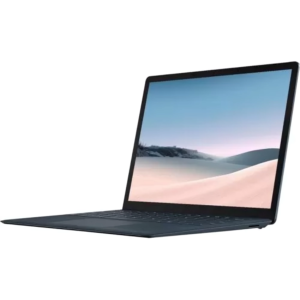
Are you in the market for a new laptop? When shopping for a new laptop, one of the most important decisions is choosing the right processor. The processor, often called the “brain” of the computer, plays a big role in determining the laptop’s performance.
Among the popular options, the Intel Core i5 is a popular choice for many users, offering a balance of power and affordability. But how does an i5 laptop stack up against other processors?
In this article, we’ll look at how the Intel i5 stacks up against these alternatives and help you decide which is best for your needs.
Performance: Intel Core i5 vs Intel Core i3 and i7
The first major comparison you’ll want to understand is how the Intel Core i5 processor laptop performs against its siblings—the i3 and i7. This is especially important when you consider how Intel processors are dominating the market.
According to Intel statistics, in the first quarter of 2024, around 63% of all x86 computer processor tests used Intel chips.
More notably, Intel processors accounted for 75% of laptop CPUs during the same period, reflecting a clear rise in their market share compared to the previous quarter.
This dominance emphasizes the importance of understanding Intel’s different processor options, like the i3, i5, and i7, as they continue to drive a significant portion of the laptop market.
Intel Core i3:
- Power: The Core i3 is the entry-level processor in Intel’s lineup. It is a great choice for basic tasks like checking emails, browsing the web, and using productivity apps.
- Performance: While it’s not designed for heavy workloads, it still performs everyday tasks well. However, it lags behind when handling more demanding apps or multitasking.
- Price: Typically cheaper than i5 processors, making it more budget-friendly.
Intel Core i5:
- Power: The i5 is designed for people who want solid performance without breaking the bank. It’s suitable for most users who do a little bit of everything—from light gaming to video streaming and running multiple apps simultaneously.
- Performance: It offers a much smoother experience than the i3, especially when working with more demanding programs or multitasking. The i5 can run most modern applications with ease, including basic photo editing or coding.
- Price: More expensive than the i3, but it provides better value for the performance you get.
Intel Core i7:
- Power: The i7 is the higher-end model and is designed for power users. It is suited for gaming, professional video editing, 3D rendering, and heavy multitasking.
- Performance: It has more cores and threads than the i5, which gives it a major advantage in performance. If you plan to run complex software or do resource-heavy tasks, the i7 is the better option.
- Price: It is the most expensive of the three but gives you the best performance for demanding applications.
Comparison Table
Here’s a table comparing the Intel Core i5 with other popular processors: Intel Core i3 and Intel Core i7.
| Processor | Performance | Gaming | Price Range | Best for |
| Intel Core i3 | Basic tasks like web browsing, office apps | Light gaming (older games) | Low budget ($) | Budget users, casual tasks |
| Intel Core i5 | Balanced performance for everyday tasks, light gaming, media consumption | Good for casual gaming, some demanding games | Mid-range ($$) | Most users, general productivity, light gaming |
| Intel Core i7 | High performance for demanding tasks like video editing and 3D rendering | Great for high-end gaming | High budget ($$$) | Power users, content creators, gamers |
This table helps you quickly compare each processor’s strengths, typical use cases, and respective price ranges.
Efficiency and Battery Life: Intel Core i5 vs Other Processors

Image source: Games Radar
When choosing a laptop with i5 processor, efficiency and battery life are two factors you definitely want to consider. How does the Intel Core i5 processor fare compared to others?
- Intel Core i5: Intel laptops with i5 processors have a reputation for being energy efficient, especially the newer models. It can provide a good balance of power and battery life, making it a solid choice for everyday users who need a laptop that can last for several hours on a single charge.
- Intel Core i3: The Core i3 is often even more energy-efficient than the i5, but the trade-off is reduced performance. For basic tasks, you can expect good battery life, but the i3 will struggle with power-hungry applications.
- Intel Core i7: While the i7 offers excellent performance, it tends to be less energy-efficient than the i5. High-performance CPUs require more power, so battery life on i7 laptops can be shorter compared to i5 models, especially under heavy load.
Price vs Performance: Intel Core i5 vs Other Processors
For most users, the price-to-performance ratio is a key factor in deciding which processor to choose. Let’s look at how the Intel Core i5 compares to other processors in terms of value:
- Intel Core i3: If you’re on a tight budget and don’t need a lot of power, the Intel Core i3 is an excellent choice. However, it won’t be future-proof if you want to do more than just basic tasks.
- Intel Core i5: The i5 offers the best balance of performance and price for most users. It gives you enough power for multitasking, media consumption, and even light gaming while still being reasonably priced.
- Intel Core i7: The i7 is perfect for power users but comes at a higher price. If you don’t need high-end performance for gaming or video editing, the extra cost might not be worth it.
Conclusion: Which Processor Should You Choose?
Choosing the right processor comes down to your specific needs and budget. Here’s a quick recap:
- Intel Core i3 is great for basic tasks and tight budgets.
- Intel Core i5 is the sweet spot for most users. It balances performance and price, making it perfect for general use, light gaming, and multitasking.
- Intel Core i7 is the go-to processor for heavy users who need top-tier performance for gaming or professional software.
At the end of the day, the Intel Core i5 offers solid performance for everyday users, and unless you need extreme power, it will likely be the best choice for most people. So, think about your needs, budget, and the tasks you plan to do on your laptop, and you’ll find the processor that fits your lifestyle!
Read More : 5 Must-Know Facts About Intel Arc GPU Before You Buy





